Aussies turn to little luxuries in cost-of-living crisis
It seems Aussies are ‘splurging’ on the little luxuries in life as they grapple with the cost of living crisis.
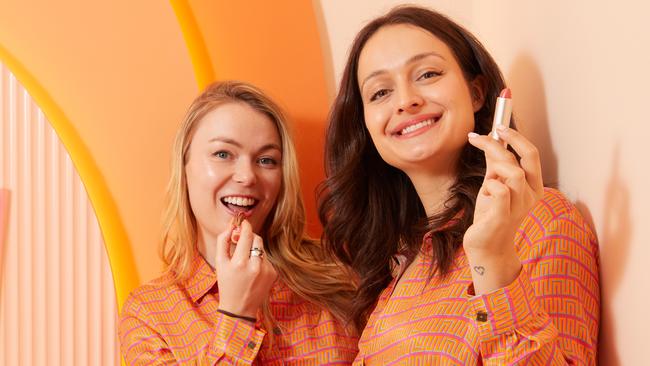
National
Don't miss out on the headlines from National. Followed categories will be added to My News.
Interest rates are up, discretionary spending is down. But that doesn’t mean that all businesses are doing it tough. In fact, some are doing well because of it.
The need to treat yourself during tough economic times is the idea behind the lipstick index. Coined by Leonard Lauder, chairman of cosmetics brand Estee Lauder, during the 2000s recession, the theory says if you can’t buy yourself a new outfit, you can usually find the funds to purchase a new lipstick.
Social media versions of this kind of thinking include #YOLO, you only live once, and #TreatYoSelf.
A Deloitte study backs it up: “Splurging to treat yourself is generally a worldwide phenomenon. Over three in four consumers surveyed globally say they made a splurge purchase over the past month, despite only 42 per cent saying they can afford to spend on something that brings them joy. In countries like the United States, Sweden, Canada and Australia, it is closer to 80 per cent of consumers.”
Social researcher Mark McCrindle isn’t surprised by consumer sentiment.
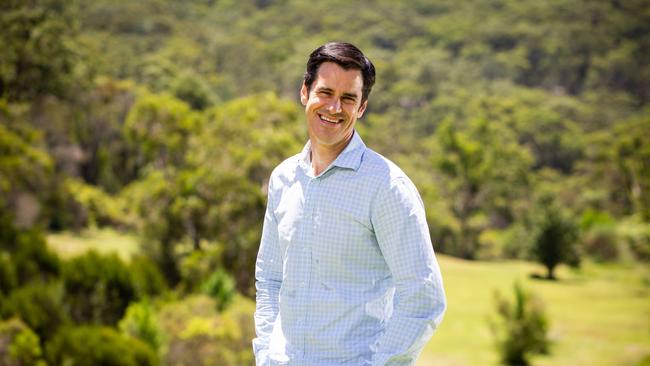
He dubs the current economic climate a “recessionette”. We’re not in a full-blown recession, but consumers are starting to respond as if we are because of the trifecta of interest rates, inflation and global uncertainty.
“What’s remarkable is people are feeling as if it’s a temporary situation, especially if their jobs are secure and they can pick up extra work if required,” he says.
“They are not cutting to the bone. We are still seeing consumers enjoying little luxuries when they can justify it.”
McCrindle finds the justification for a splurge is wellbeing, from a mental and physical health perspective.
“Even though the economy has created some of their anxiety, people think maybe economics can also help solve it,” he says.
“We’re seeing an attitudinal shift, the younger generation can worry about finances and retirement down the track. This is just a temporary situation of economic uncertainty.”
He sees the lipstick index fitting into this new sentiment, but rather than a $20 lipstick it can stretch to triple figures, depending on earnings.
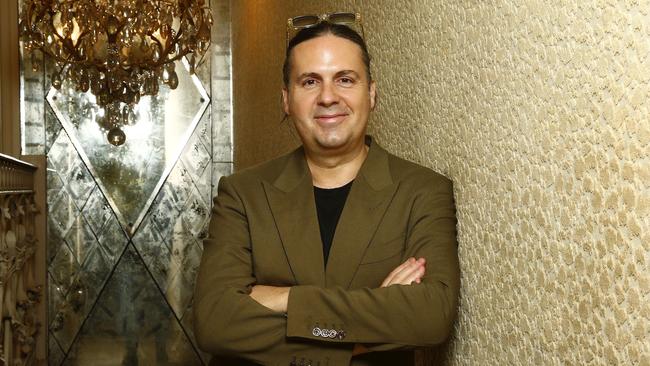
“It’s not just lipsticks or cosmetics – it can also be things we might consume in a cafe and enjoy socially rather than individually. Much of what is a wellbeing, lifestyle spend is on intangibles because people are valuing the metaphysical, not just the physical. They prioritise their wellbeing rather than their bank account.”
Woollahra hairdresser George Giavis has found people are looking for experiences and a few hours at the salon is something they prioritise.
“Hair salons provide routine and luxury. If you look good, you feel good,” he says.
“Good colour takes a long time and clients look forward to a few hours to themselves. A client said to me that with the experience of a salon visit you get a personal connection, and that also provides value.”
While some clients are booking extended appointment times and requesting cuts and colours that can stretch to 12 weeks instead of the usual eight, Giavis is still busy. He starts at 7am and, unlike a lot of hairdressers, works Mondays to fit in his clients.
Rather than rely on discounts, he focuses on providing a boutique experience. And a serving of his mother’s homemade spanakopita doesn’t hurt either.
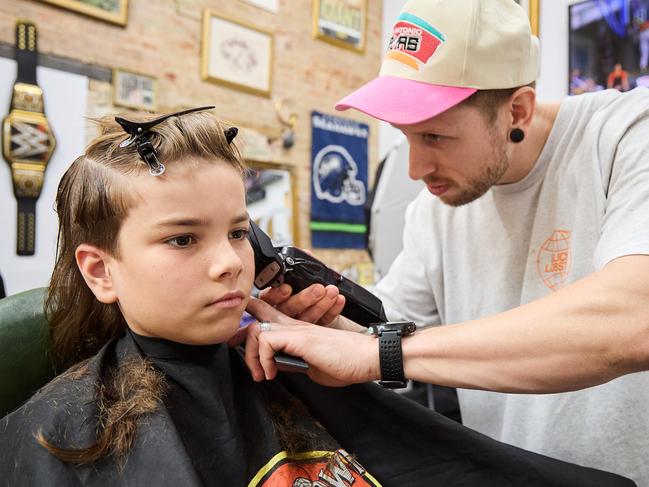
“With building economic pressures, I’m noticing clients are truly relishing their time with me and using their appointment as a form of self-love and reward,” he says.
“Life is short, keep some frills for yourself. It’s important to have something to look forward to.”
Katelin Gregg and Ella James opened Fayshell, a skin clinic with a membership pricing model, in December last year. The timing doesn’t sound great, but the Bondi Junction clinic has done so well that a Neutral Bay venue just opened this week.
It’s pitched to the millennial market from a wellbeing angle rather than an aesthetics angle – this is about improving skin health rather than being a luxury.
Members sign up for monthly facials, they know how much they’re spending and the results-driven, 30-minute treatments are personalised to their skin’s needs.
“We compare it to going to the gym to visit a personal trainer. Instead of you telling the PT ‘this is the exercise I want’, you talk through your concerns and goals and let the experts customise your programs so you do get the best result the most effective way,” Gregg says.
“Fayshell is like seeing your PT once a month to do your hard training session and then in between your sessions you have to visit the gym, so our members have access to the LED bar (light-emitting diode), which builds up your skin’s fitness and improves its barrier.”
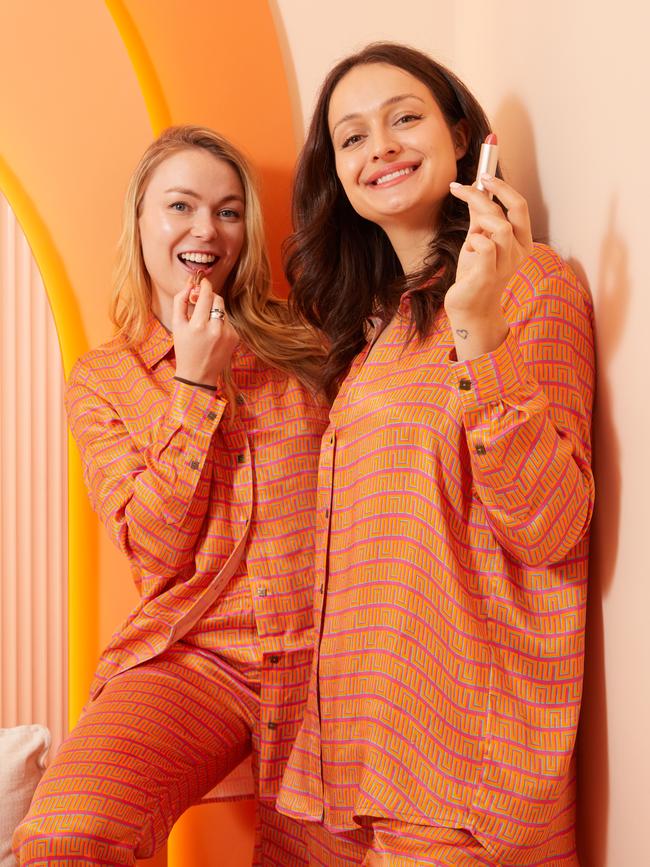
The membership model, $129-$329, is a way to ensure consistency and lock in a price.
It’s also an industry first and the founders didn’t anticipate how well it would be received.
“Customers like paying a flat rate and knowing they can have their treatment and also unlimited use of the LED bar. It’s been received really well because all they have to do is show up and our therapists do the rest,” James says.
“We haven’t found that the cost of living has impacted us greatly as a business yet. We think a key reason is because – compared to your average treatment, particularly around the east – we are affordable. You can pay $600 for an hour-long facial at some clinics, which is insane.
“Our business model is very competitive. There are people out there who, in this current economic climate, can’t necessarily afford to go to these expensive clinics. But people still want to spend on how they look because it makes them feel good, so they will find alternatives that they can still fit in their budget.”
Gregg and James consider Fayshell a customer-experience business first and foremost, which has been a big part of their success.

“I think having a sense of community has been a factor. Every other clinic is a one and done. Often you walk in thinking that you’re getting something and you walk out having spent way more than you wanted to because they upsell you on products and treatments. The whole experience was broken,” Gregg says.
“From your first interaction with us, we have an in-depth consultation where we get to know you, then you come through and have this beautiful, customised experience and we follow up with an email that’s got all your instructions and what we’d love to have you back in for next time. There’s also a little personal message from your therapist, so it’s a very different experience.”
When it comes to treats, it’s not just wellness that we’re willing to spend on. The Deloitte study also found we eat and drink our way to happiness, with food and beverage being the most popular category for splurging.
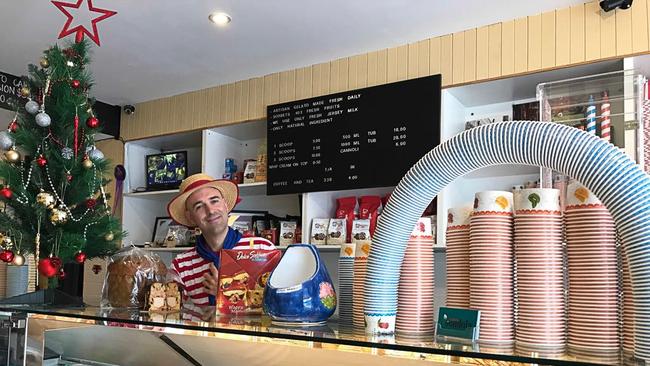
It’s a good thing for Gelateria Gondola owner Luca Zanini. The artisan, award-winning gelateria in Chatswood has been in business for 10 years and is going strong.
“The business is definitely doing well now. Our customers are loyal, which is why we are still here. Even during Covid we had a good response from the community,” he says.
Gelato is an affordable indulgence but, like a lot of businesses, Zanini is having to raise his prices, which is always tricky.
“A scoop of gelato is $6.50, I haven’t increased it for the last three years but in the last 18 months every single ingredient and cost of making gelato went up a minimum of 10-25 per cent,” he says. “I know some people will be a bit resistant or cranky, but if I want to keep doing business I have to do it.”
Originally published as Aussies turn to little luxuries in cost-of-living crisis


